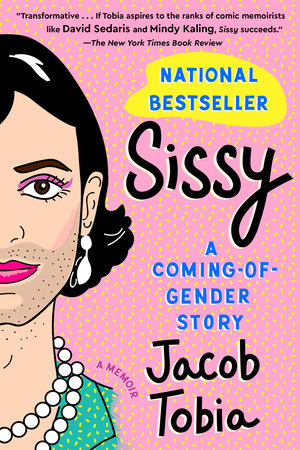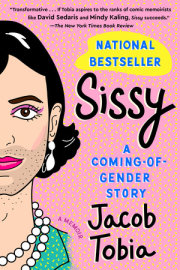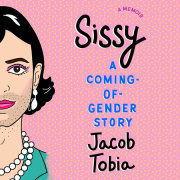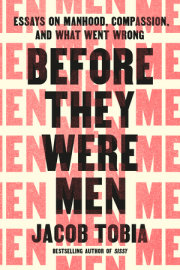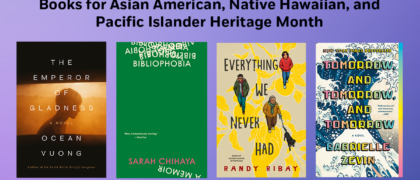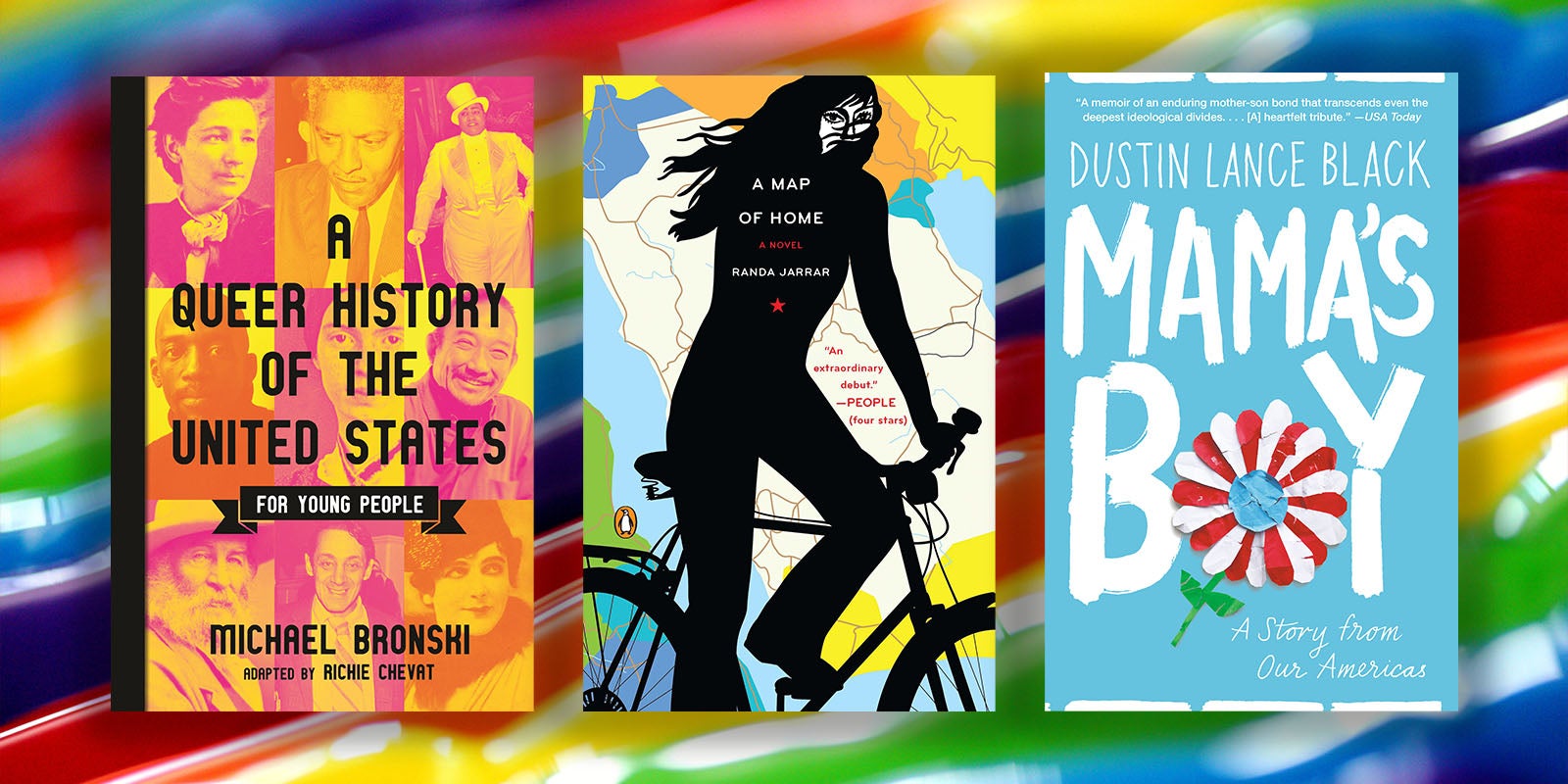A Quick Manifesto
(Pun Intended)
I used to think that my gender was a voyage that needed a destination, but as I've gotten older, I've come to embrace that my gender is more like an onion. It doesn't have a center, a core, or a discernable middle. It's layer upon layer upon layer, veiled beneath a thin skin. Sometimes the act of peeling apart the layers, of chopping them up and processing them, can make your eyes sting. Uncovering a new layer can even make you cry. Sometimes it's smelly work. But each layer is meaningful, and with enough time and proper preparation, each layer is delicious.
Here's the thing. This isn't a book about a self-actualized trans person who knows everything there is to know about their gender; this isn't a book about a demure, polite queer person who's here to teach you Transgender 101; and this certainly isn't a book about a queen who's got everything figured out.
In fact, this book is a rebellion against a mainstream, classical trans narrative that's, quite frankly, gotten a little repetitive. This far past the Trans Tipping Pointª the Trans Narrative© has basically been distilled into something of a Mad Libª. It generally goes like this:
My Classical, Binary Transgender Story
I was born in the wrong body. The doctors told my parents that I was a __________ [boy or girl], but I always knew that I was the opposite of that. I grew up in a __________ [small/medium/big] __________ [town/city/village/suburb] in a __________ [nuclear/single-parent/conservative/dysfunctional] family. I told my mom that I wasn't a __________ [boy/girl], I told my dad that I wasn't a __________ [boy/girl], but no one believed me.
*cue dramatic Lifetime Original Movie music*
I spent years hating myself, thinking that something was wrong with me. I became more and more depressed. _____________ [Troubling story of depression/suicide/self-harm/abuse. You owe it to the audience, even if you're not really ready to share it yet].
Then one day, I got the courage to come out. _____________ [Dramatic story about coming out to your parents. You have to start with the story about when you came out to your parents, even if it's not what you want to talk about. Focus on all the terrible things they said to you.].
I was rejected by many people in my life. _______________ [More trauma]. _______________ [And even more trauma, because that's the only way that people will try to understand you or take this seriously]. _______________ [Maybe just one more traumatic story for good measure? If the audience isn't crying, you're not doing your job as a spokesperson.].
That's when I decided that I needed to transition. I started hormones and had a _______________ [breast augmentation/reduction]. Then I did the really hard thing and got "the surgery" to make sure that my genitals aligned with my identity. And don't even get me started on body hair! It takes so long to _______________ [grow/get rid of].
*cue "Firework" by Katy Perry.
This is the part where you should tear up a bit*
Now I'm living as a _______________ [man or woman] and I couldn't be happier. I reintegrated into the gender binary and "fixed the problem," so now I'm a _______________ [man/woman] just like you! I am so happy now that my body finally aligns with what heterosexual society expects a _________ [man's/woman's] body to be. Now I can be a normal person and live as a full part of society.
Thank you for listening to me and hearing my authentic truth [smile so that you don't seem threatening]. Trans people are just like you!
Over the last few years, I've heard this narrative reiterated ad nauseam in national news outlets, documentary films, fundraising materials, and Facebook posts alike. It seems to be the only trans narrative that cisgender people want to hear; the only trans story that cisgender people can comprehend. Quite frankly, I'm exhausted by the limits of the cisgender imagination.
Let me be clear. There isn't anything inherently wrong with this narrative. It's like chocolate ice cream: it's delicious, delightful, widely appreciated, and pairs well with countless toppings. But if you walked into an ice cream store and they only had chocolate ice cream, you'd feel like there was something missing.
The classical binary narrative is still a transformational and deeply worthwhile story. There are many, many trans people for whom this classical narrative is true, and those trans people are just as self-actualized, powerful, and beautiful as anyone else. It is still courageous and radical for trans people to tell that story and claim that truth as theirs.
But it is not okay for cisgender people to take that story as the trans story, because that narrative simply isn't true for all of us. No one trans story is better or inherently more "radical" than another, but that hasn't stopped cisgender media culture from deeming certain trans stories to be more valuable than others. Those of us who don't fit the classical narrative end up either having our stories edited and reedited until they fit, or end up having our voices silenced.
And that's fucked.
At its best, this narrative is just an oversimplification of the trans community. At its worst, this narrative is used as a tool-reinforced by cisgender editors, curators, movement leaders, and gatekeepers-that continues to pressure trans people into fitting into one of two binary genders. By showing how desirable it is to be gender conforming and "pass" as a man or as a woman, this narrative reiterates the idea that gender nonconforming trans people are less-than and should be lucky to be treated as the gender with which we identify.
Through diagnosing the classical trans narrative-and through detailing how my own story and worldview differ from it-we can come to a deeper understanding of why this book is a timely and oh so needed challenge to people who believe that there's only one trans story to tell.
The first thing that's challenging about the classical trans narrative is that it glamorizes trauma. As trans people, our stories are not valued if they are gentle. We can't just wake up, realize we feel differently about our gender, and take it day by day. We can't try on lipstick, like it, think about it for a few weeks, and decide to wear it more. We can't be low-key. Being trans has to be a big deal. It has to be this massive thing that defines you. We have to burn for years, neglected and abused, before coming out dramatically. Otherwise, why should our identities be taken seriously? Too often, the world demands that we earn our transness through our trauma.
I refuse to tell my story in those terms. My trauma is no longer what I define myself by, and it has taken a lot of therapy, self-love, and depression naps for me to get to that point. I define myself by a set of different virtues: the fact that I am a decent writer, the fact that I am a resilient person who has found healing, the fact that I am goofy as hell, the fact that after decades of being understood by everyone as white, I'm finally beginning to explore what it means to be an Arab American, the fact that I was eating my grandmother's hummus way before white people decided hummus was cool.
What also frustrates me about the classical trans narrative is that it depends on trans people existing solely in the man-woman binary. Fitting into the gender binary, being a "real woman" or a "proper man," has been baked into almost every facet of trans storytelling. Your body and the sex you were assigned at birth are poised as the enemy, as the dragon that must be slayed, as the Ring that must be hurled into Mount Doom, as He Who Must Not Be Named. At the end of the story, you have overcome your body to truly fit into the gender binary again. Fitting into the gender binary propels the rising action, the climax, the falling action, the denouement. Without the gender binary, many might feel that trans storytelling wouldn't hold water.
Sorry, but I'm not going to use the binary idea of "coming into my manhood" or "earning my womanhood" to orient you. This isn't about any singular conquest, because as it turns out, trans storytelling gets better without the gender binary as the goal. The story opens up. Free from proscriptive binary boundaries, we are able to tell stories that don't come with an inevitable conclusion, and the possibilities become as endless and varied as the world around us. I'm bored of our culture's obsession with binary-oriented storytelling. It feels like being stuck in missionary position, when all I really wanna do is ride.
Another thing I want to challenge about proscribed trans storytelling is that it demands consistency of identity. As trans people, we're supposed to say, "I've always known I was a girl" or "I've always known I was a boy." We're supposed to say that we've always had a rock-solid identity and sense of self; otherwise, our identity seems weak, uncertain, fallible.
There are many things that I have always been. I've always been clumsy, I've always had trouble with group sports activities, I've always been a bit of a stage queen, and I've always made it a point to eat ice cream on at least four different occasions each week. There are many things that I've always known about myself, but my gender just isn't one of them. I didn't know that I was a girl. And forgive the double negative, but I wasn't sure that I wasn't a boy, either. I just knew that gender was kinda stupid and that I wanted to play with Barbies, get dirty in the creek behind my house, and kiss the blue Power Ranger real bad.
As people, our identities change over our lifetimes. This applies to transgender and cisgender people alike. Everyone has a gender that evolves. Even if you identify as a woman, what it means to be a woman is never the same from day to day. Or, if you identify as a man, the way that your manhood manifests will be different throughout your life. The idea that gender is consistent is a flawed premise to begin with. By resisting convenient labels and embracing authentic ambiguity, I want to challenge the tenet that gender must be consistent and immediately legible to others. This is a story about the messy parts, the rough edges, the chunky bits of the stew.
But perhaps the most exhausting thing about the classical trans narrative, and the thing that most strongly violates my personal pet peeves, is that it's not funny. Within the way that we are accustomed to talking about gender, there seems to be no place for humor. We have to take gender seriously, because gender is not a laughing matter.
Well, I beg to differ. Gender is not serious, or at least, it shouldn't be. Taking our own gender or the gender of others too seriously results in a world where gender must be rigid, must adhere to consistent rules and regulations. This is detrimental to basically everyone, because it stops us from having fun with our gender presentation and sense of self. If "being a man" and "being a woman" are always treated as serious things, we perpetuate a world in which human possibility is confined.
That's why, in these pages, I've tried to let loose and have a little fun. I'm giving you permission to laugh not only with me, but at me, because I refuse to take my experience with gender too seriously. I refuse to talk about my childhood confusion without also laughing at how dramatic I am. I refuse to talk about my father's initial rejection without giggling at how silly his mannerisms are. I refuse to talk about the fact that I'm trans without also talking about the fact that I am a hot, overachieving mess of a human.
Don't think of this book as an epic journey. It's not. Instead, think of this book as you would a good sex party. There are rich interactions with countless individuals. Each moment is complex, beautiful, and passionate. There is pleasure in the pain and pain in the pleasure. And half the time, especially in the beginning, you really aren't sure what to do with your genitals.
Oh, and one more thing (sorry). The trans narrative perpetuated by mainstream media fucking sucks because it rarely acknowledges history or community. It implies-or, at times, outright says-that this whole trans thing is new. That the trans experience is a product of the modern world. As if trans people haven't been around for all of recorded history. As if gender nonconformity isn't as old as gender itself. As if precolonial and indigenous cultures across the world didn't have rich traditions of honoring gender nonconforming, trans, and two-spirit people. As if every trans person on the planet doesn't owe our present freedom to the struggles of generations of gender nonconforming and trans folks who came before.
It (callously) suggests that we claim our identities in a vacuum, solely through our own courage and audacity. Not only is that inaccurate, it's just plain fucked up. No trans person exists in a vacuum. Even before we first hear the word transgender or the term gender nonconforming, we are born into a world that has been painstakingly, albeit chaotically, built for us by our trans elders. Even before we know their names, our trans and queer elders have paved the way for us. Against insurmountable odds, they found a way to survive in the wilderness; oftentimes learning by trial and error; leaving behind field guides and hand-drawn maps and hastily scrawled notes about which berries will kill us and which berries are oh-so-yummy to eat.
The struggle to feel self-actualized in your gender, to feel that your gender is fully yours, is a fundamentally human struggle. No matter what labels we use to describe ourselves, everyone has their own journey to gender authenticity. The more we share our journeys, the more we challenge the static structure in which we are told to understand ourselves, the greater freedom we find to celebrate ourselves as we are. In a moment when the conversation about gender norms has never been more nuanced or more heated, I'm doing my best to stand as a beacon, a well-adorned, glitter-encrusted lighthouse providing direction, warning, and much needed light to all the sexy sailors and pirates who want to plumb my depths.
We deserve more expansive portrayals of trans lives. It's time for trans folks with the messiest identities to step up to the plate. It's time for gender nonconforming and nonbinary trans people to get the mic. It's time for trans people of color to shape the story. It's time for low-income and rural trans people to guide the narrative. It's time for disabled trans people to set the course. It's time for indigenous trans people to get the whole damn stage.
Copyright © 2020 by Jacob Tobia. All rights reserved. No part of this excerpt may be reproduced or reprinted without permission in writing from the publisher.

